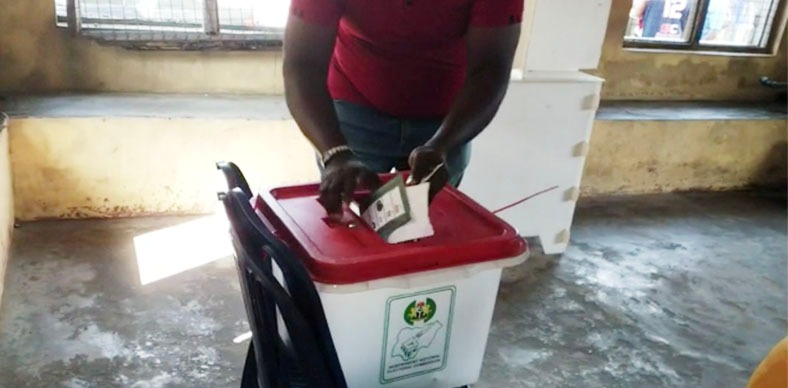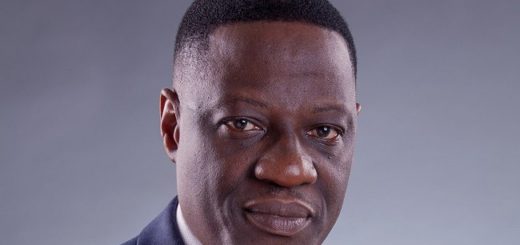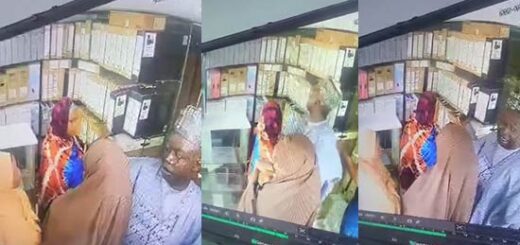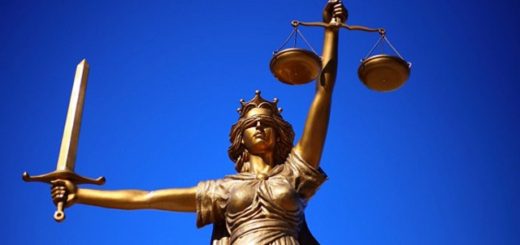“Aondoakaa Advocates Tribunal to Address Election Malpractices”
 Chief Michael Aondoakaa, SAN, former Attorney-General of the Federation and Minister of Justice, has called for the creation of an Electoral Offences Tribunal in Nigeria, saying it is essential for addressing electoral malpractices and ensuring the credibility of the country’s elections.
Chief Michael Aondoakaa, SAN, former Attorney-General of the Federation and Minister of Justice, has called for the creation of an Electoral Offences Tribunal in Nigeria, saying it is essential for addressing electoral malpractices and ensuring the credibility of the country’s elections.
Speaking in an interview on Arise TV, Aondoakaa emphasized that such a tribunal would act as a strong deterrent for electoral offenders and bolster the integrity of Nigeria’s electoral process.
The call comes in response to concerns raised by Professor Mahmood Yakubu, Chairman of the Independent National Electoral Commission (INEC), regarding the delays in prosecuting electoral offences. Yakubu had pointed out that many cases from the 2023 general elections are still unresolved in court, largely due to the absence of a specialized tribunal to handle electoral matters.
Aondoakaa, agreeing with Yakubu’s suggestion, pointed out that electoral offences are one of the main corrupt practices undermining the country’s elections. “If offenders are punished through appropriate penalties and sanctions, it will serve as a deterrent,” he said. He added that the proposed tribunal would expedite trials and discourage politicians and their supporters from engaging in electoral violence and malpractice.
A Long-Standing Proposal
Aondoakaa explained that the idea of an Electoral Offences Tribunal was part of the electoral reforms introduced during the administration of the late President Umaru Musa Yar’Adua. Under Aondoakaa’s leadership as Minister of Justice, the Federal Executive Council approved the creation of the tribunal and sent the proposal to the National Assembly. Unfortunately, the bill was never passed into law.
“The plan was to set up a tribunal that would focus solely on electoral offences. It was intended to ensure fast-tracked trials and create a deterrent,” he explained. Aondoakaa now urges the current administration under President Bola Tinubu to revisit the proposal and prioritize its establishment ahead of the 2027 general elections.
The Challenges of Prosecution
Aondoakaa highlighted the difficulties of prosecuting electoral offences under the current system, where cases are handled by magistrates and state high courts. He noted that these courts often have heavy caseloads, which causes delays in handling electoral offences.
“A magistrate or judge cannot prioritize electoral cases over other criminal matters. By the time they are able to address these cases, they are often overwhelmed and forced to adjourn,” he said. He also recommended that INEC collaborate with the National Judicial Institute to create fast-track rules to handle electoral offences at the magistrate level, pending the tribunal’s establishment.
Progress and Encouragement for Reforms
Despite the challenges, Aondoakaa acknowledged the progress made in recent years. He commended the judiciary for its conviction of a former INEC official, Professor Peter Ogban, who was sentenced to three years in prison for electoral fraud during the 2019 general elections. Aondoakaa praised the decision as a significant step in cleaning up the electoral system.
He also lauded President Tinubu for dismissing three Resident Electoral Commissioners (RECs) implicated in electoral malpractices. “The president has shown courage in taking this step. It sends a clear message that electoral offences will not be tolerated,” Aondoakaa said.
A Call for Swift Action
Aondoakaa called on President Tinubu to prioritize electoral reforms, particularly the establishment of the Electoral Offences Tribunal, as part of preparations for the 2027 elections. He expressed confidence that such a tribunal would significantly enhance the credibility of Nigeria’s elections and discourage future electoral crimes.
“The president has the opportunity to make history by ensuring the creation of this tribunal. It will help establish a fair, transparent, and trusted electoral system,” Aondoakaa concluded.













